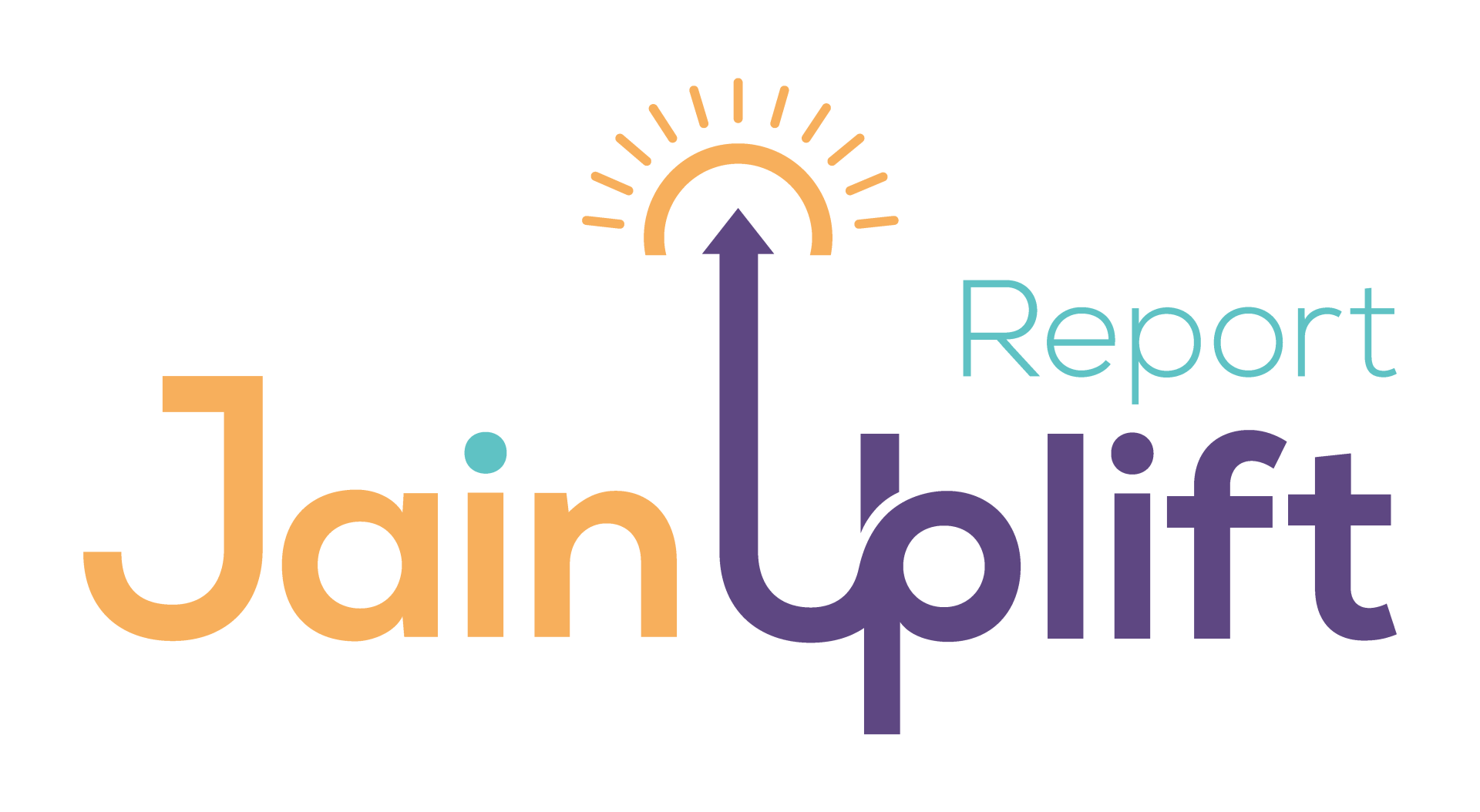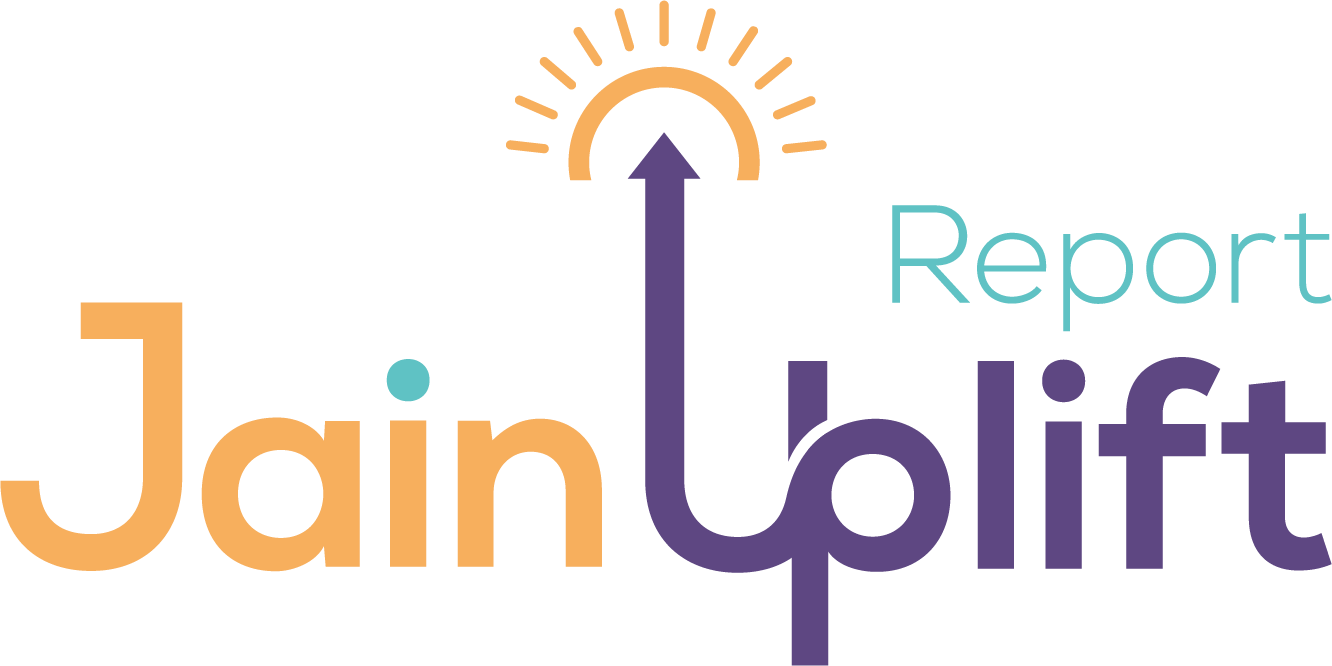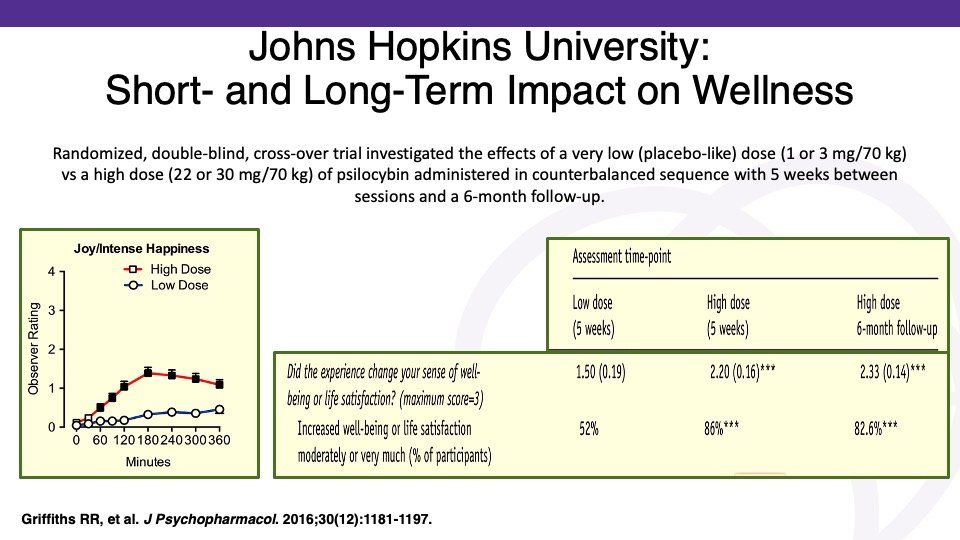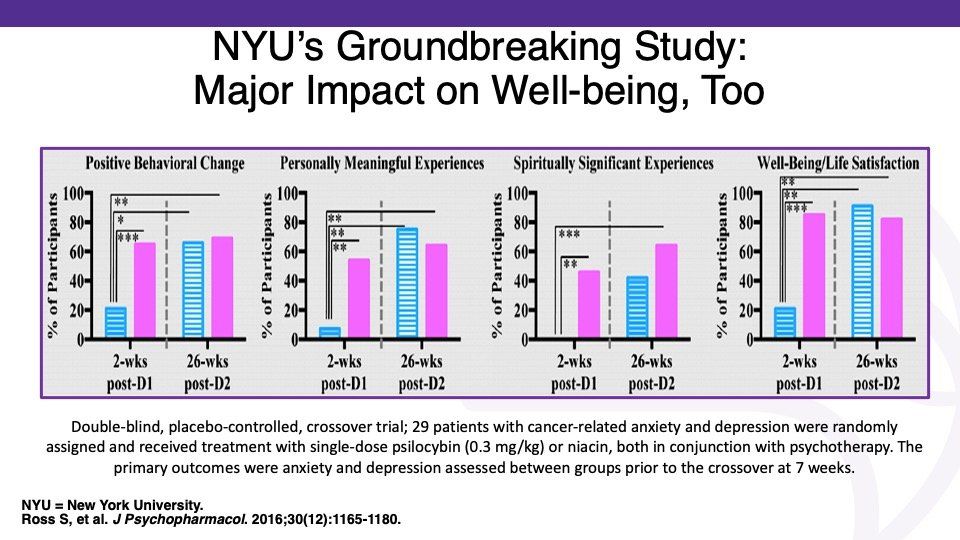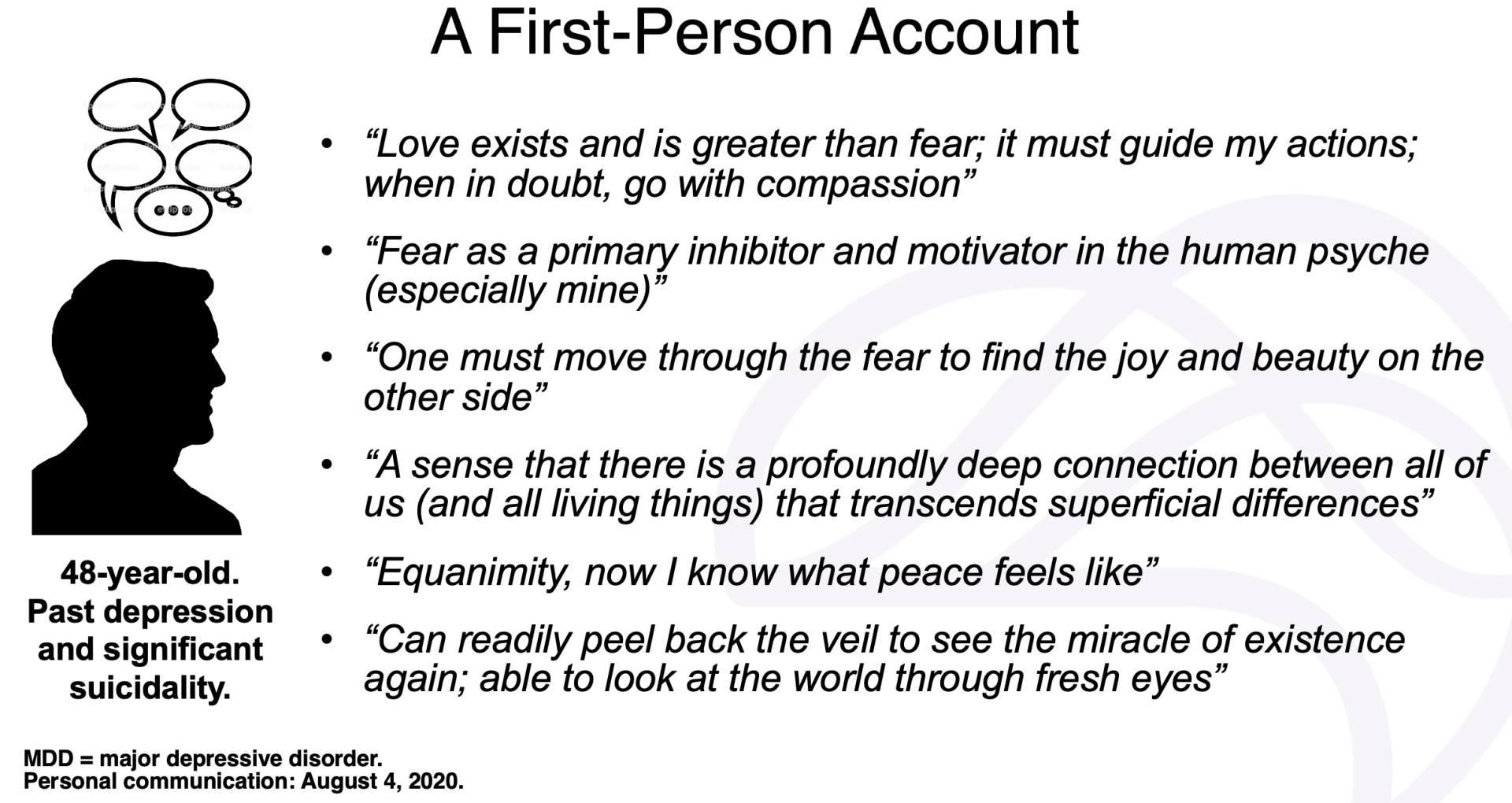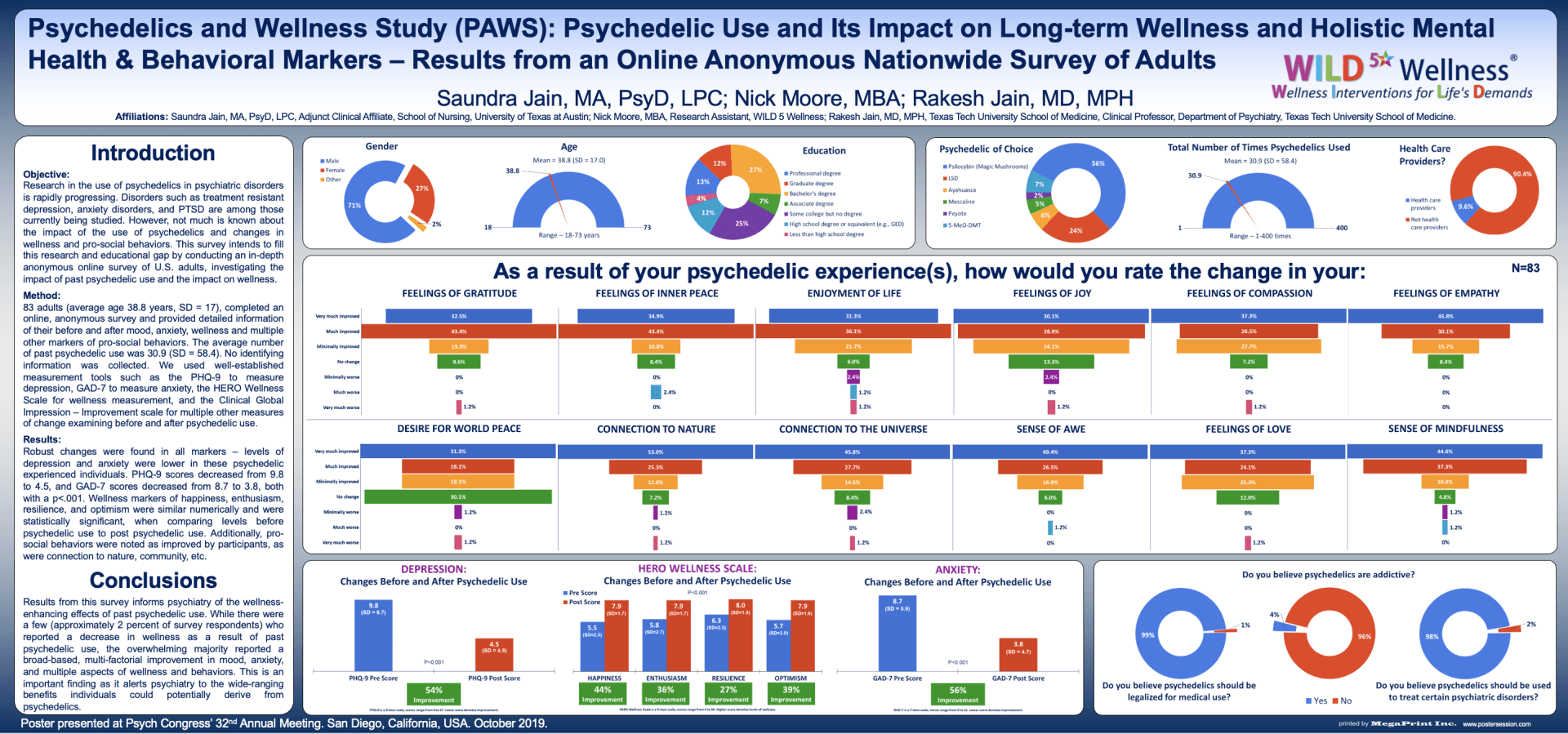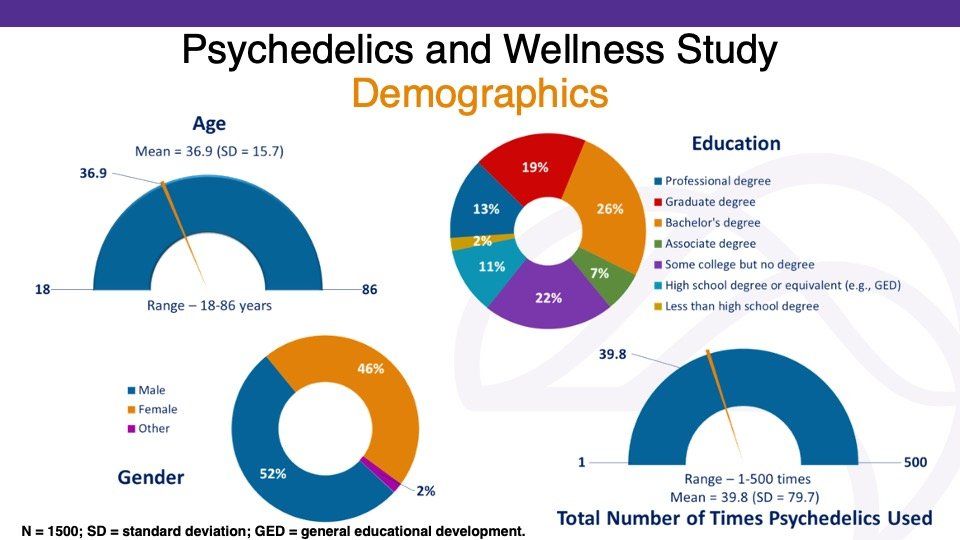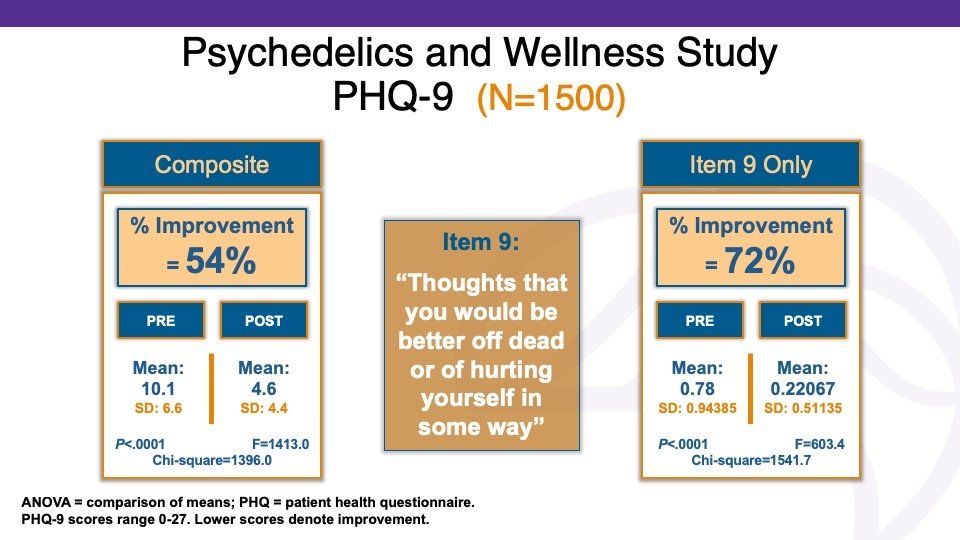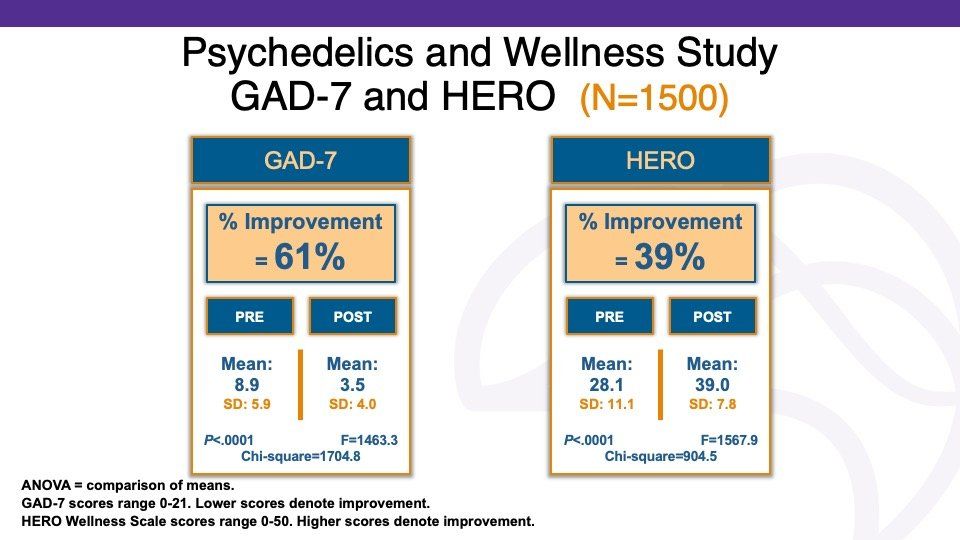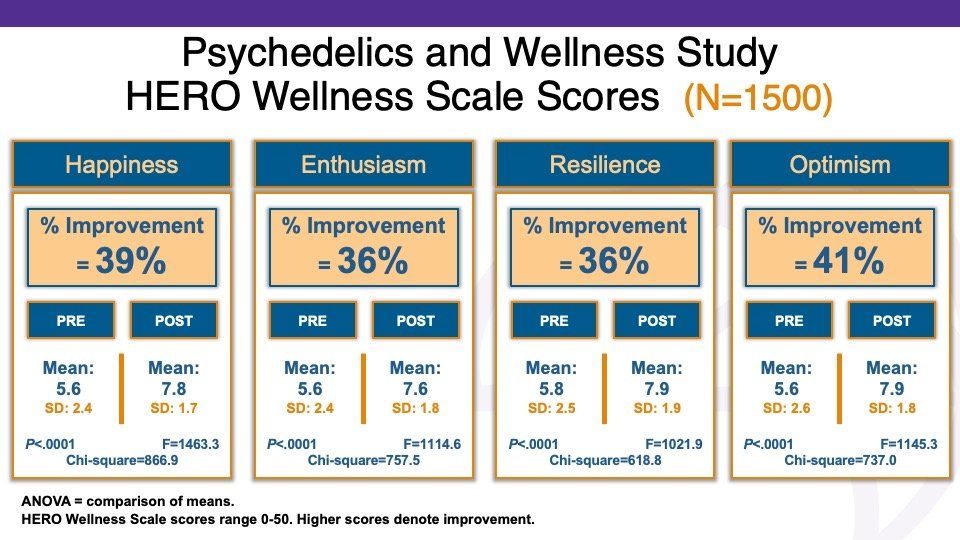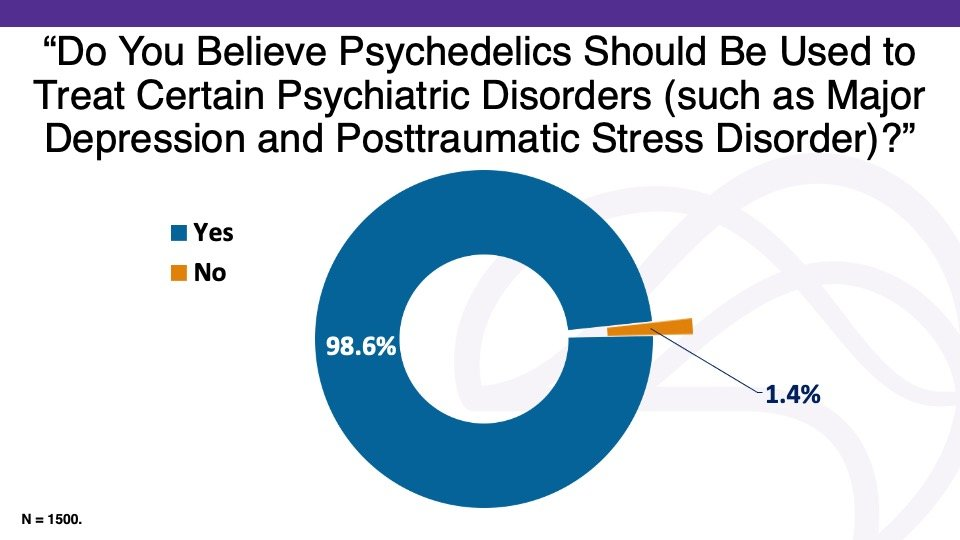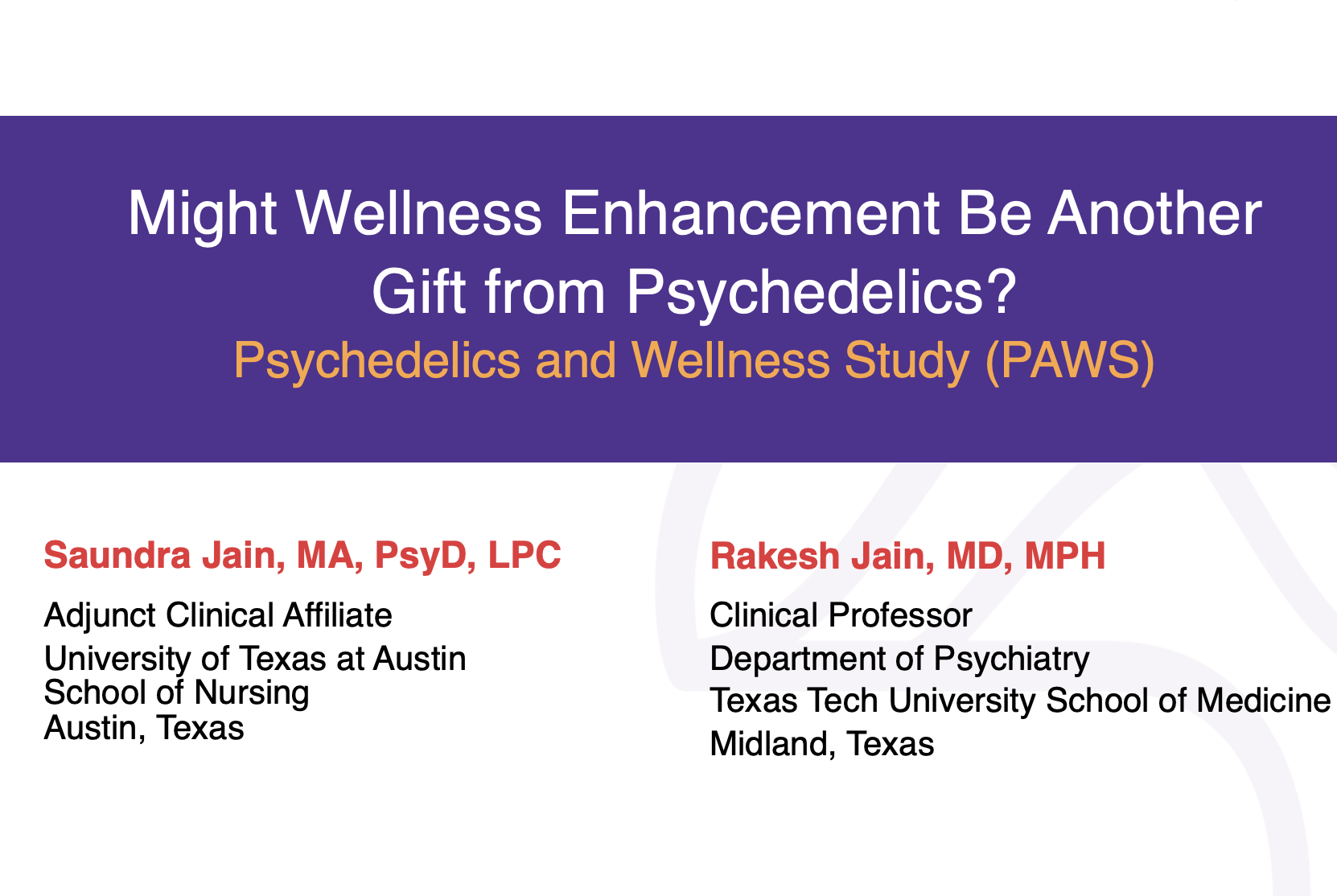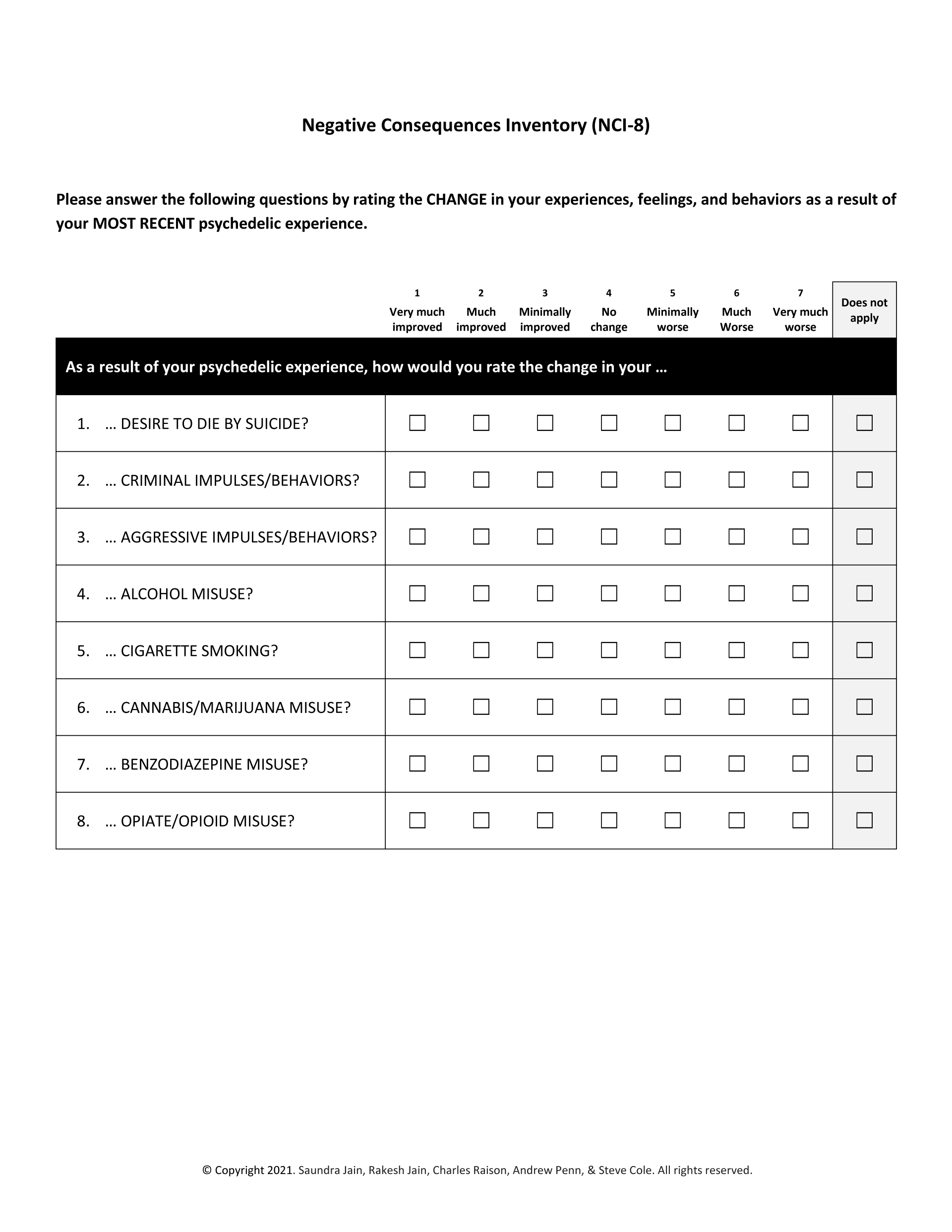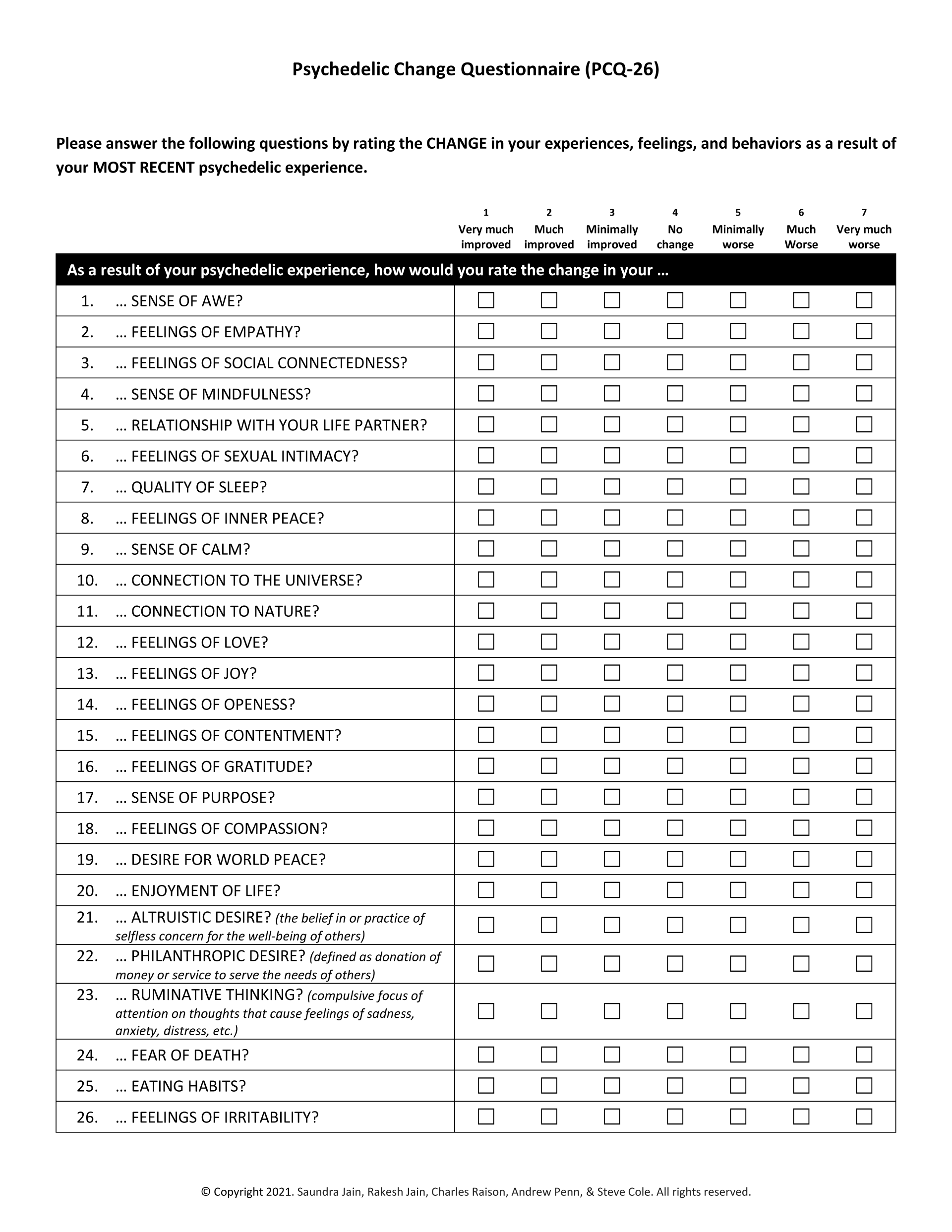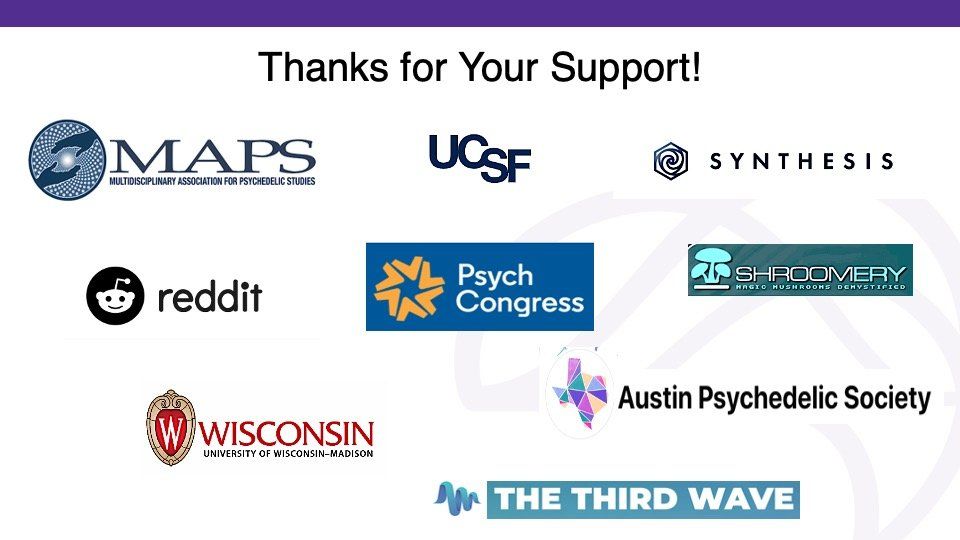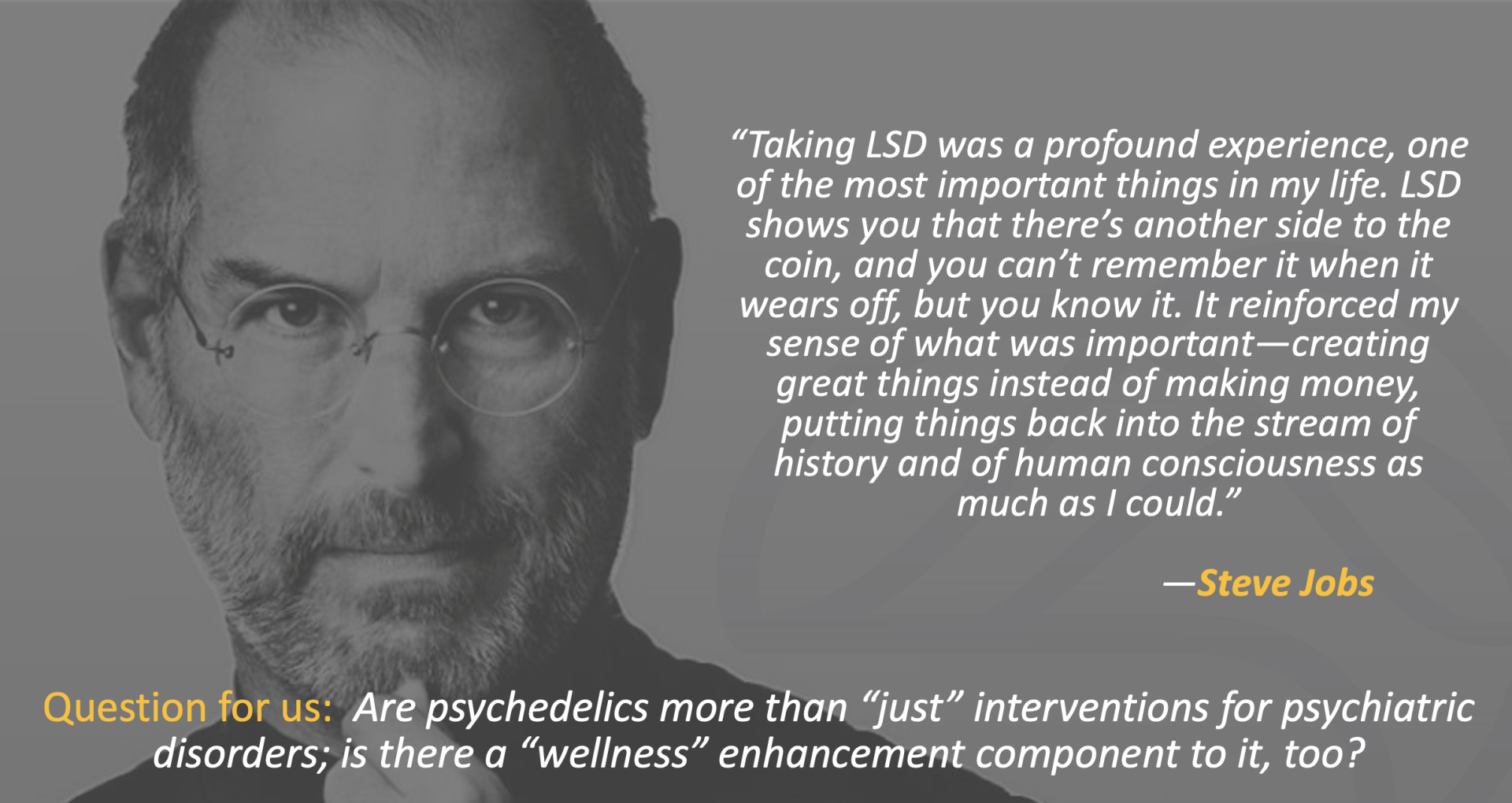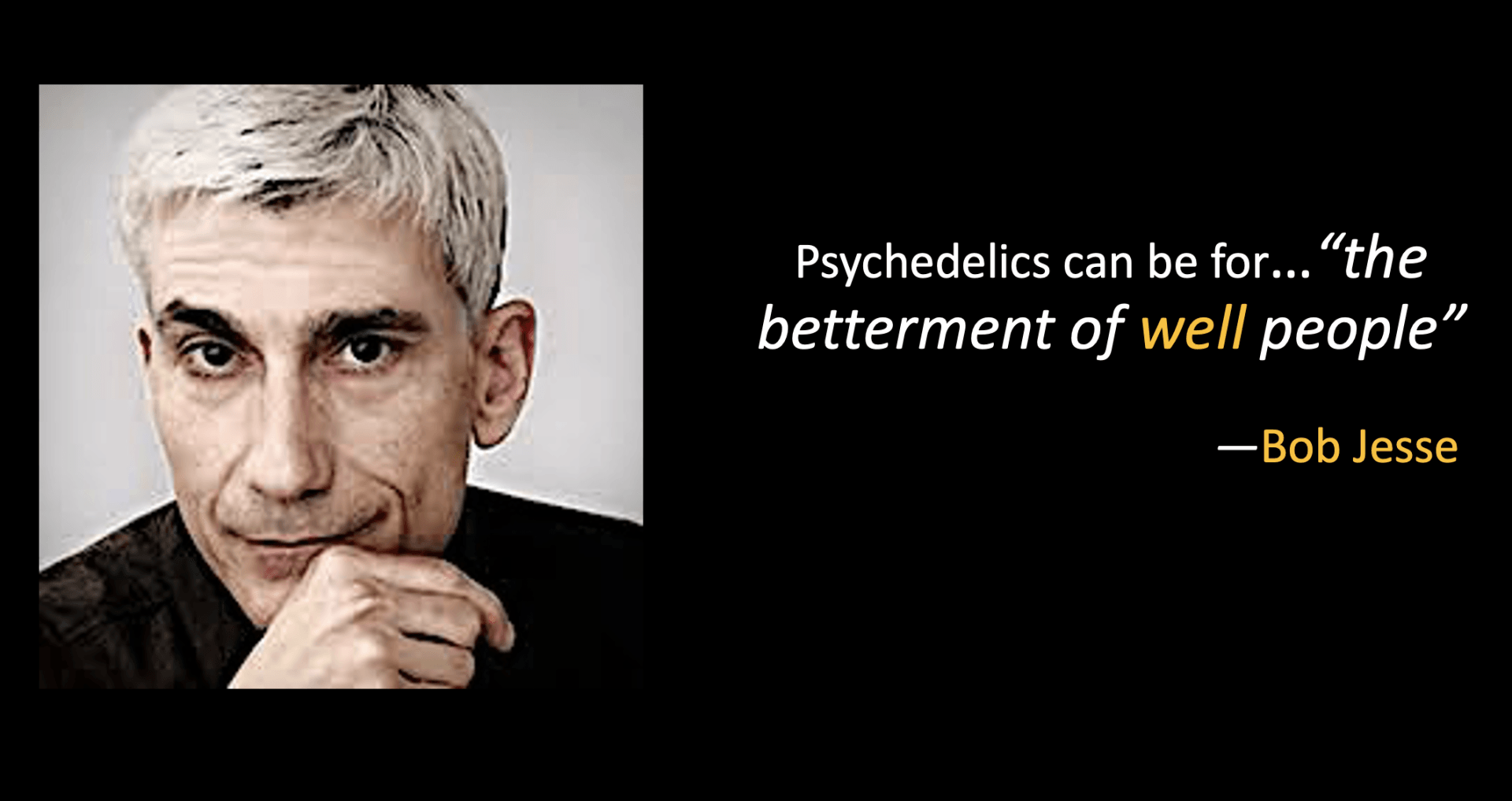We were curious to see if the use of psychedelics improved mood and reduced depression. As you can see here, it appears to have reduced depression as measured by a well-known scale, the PHQ-9, by over 50%. We were also curious to see if suicidal thoughts changed as a result of previous psychedelic use. And here too a decrease was associated in psychedelic users - a decrease of 72%.
Are Psychedelics Agents of Change in our Wellness?
No hyperbole when we say, psychedelics have captured the imagination of the world! It's a vast area of current research and clinical practice. We are in the midst of a true renaissance and we say, it's about time!
There are many wonderful websites out there informing all of us about the recent developments with psychedelics. Instead of replicating what they do so well, we will focus on one area of psychedelic work - a deep focus on the impact of psychedelics on wellness.
Wellness is a broad area that includes personal, emotional, moral, and social wellness. We have conducted significant research looking into this topic (results of our work below) and we plan to keep you updated as new data emerges from our research and from research around the world.
In many ways, it's Johns Hopkins University and its researchers, primarily Ronald Griffiths, Ph.D., who have birthed the second renaissance in psychedelic research. And much to these wonderful researchers' credit, they have focused equally on disease symptoms and wellness improvement. They have truly taken a comprehensive approach to understanding exactly what psychedelics do to help individuals. Here is a study of psilocybin ('magic mushrooms') from this group that clearly delineates the improvements in wellness they saw in their research participants. What is truly intriguing, is this improvement in wellness occurred both in the short- and long-term. Truly interesting.
Another great center of psychedelic research in the modern era is New York University. Under Dr. Ross' leadership their study of psilocybin in patients with cancer-related anxiety and depression demonstrated very similar findings to the Johns Hopkins' study, a quick and sustained elevation in well-being. These improvements appear to be broad-based with sustained increases in spiritual well-being, positive behavioral changes, and life satisfaction. It is so fascinating that a completely different group of investigators at NYU are seeing the same improvements in wellness as the Johns Hopkins' study.
Might Wellness Enhancement Be Another Gift from Psychedelics?
Psychedelics and Wellness Study (PAWS)
We were motivated to examine the overlap between psychedelics and wellness after hearing of the experiences from people from all walks of life on how their wellness improved secondary to psychedelic use. Such experiences are now being reported from all corners of the world. This is why we are conducting the world's largest survey on the impact of psychedelic use on changing levels of wellness.
PAWS Preliminary Results - 1500 participants
Preliminary results from the world's largest survey on the impact of psychedelics on human wellness.
Here are the demographics of the first 1,500 people who participated in our groundbreaking, largest in the world study of the overlap between psychedelics and wellness. We are so grateful to all who participated! This is truly an international study and entirely anonymous. We hope that you will notice that the PAWS study represents a wide swathe of our population, with a diversity in age, educational background,
and the diverse psychedelics participants utilized.
Here is what we saw after a preliminary analysis of the first 1,500 volunteers' data. GAD-7 is an internationally accepted self-rating tool to measure anxiety. As you can see, there is significant improvement in anxiety - 61% - being reported by individuals. HERO is a scale we developed, validated, and have published, and it measures happiness, enthusiasm, resilience, and optimism. Here we see a 39% self-reported improvement.
Here we present changes in wellness levels as reported by these 1,500 volunteers.
It appears there is a 39% improvement in happiness, a 36% improvement in enthusiasm, a 36% improvement in resilience, and a 41% improvement in optimism.
We're in the process of working with two colleagues - Charles Raison, MD and Andrew Penn, NP, APRN, to analyze and publish the results of the PAWS study, but this time with data from a larger group of 2510 individuals.
Society is currently engaged in an appropriate deep discussion on the legalization of psychedelics. It is an important conversation to have before a final decision is made at a societal level. However, of these 1,500 PAWS participants, a whopping 90+% of people do feel legalization is appropriate, and the vast majority believe they have a potential role in treating serious mental health disorders such as major depression and PTSD. Additionally, 98.6% of participants believe psychedelics should be used to treat conditions such as PTSD and depression.
The PAWS Study - World's Largest Survey on Wellness and Psychedelics
The two of us launched this world-wide study and still continue to collect data. We've surpassed 2600 respondents so far and we're sending each and everyone of them deep gratitude for helping us conduct the world's largest survey of how psychedelic use impacts human wellness, mood, and anxiety. We have compiled the results from the first 1500 individuals and the results are here for your review.
Negative Consequences Inventory (NCI-8)
is an 8-item scale designed to query eight potential negative
outcomes that may be ascribed to psychedelic use.
Psychedelic Change Questionnaire (PCQ-26)
is a 26-item questionnaire that queries a mixture of emotional states that often occur during a psychedelic experience plus longer-lasting change in emotions like awe, connection with nature, and feelings of joy. Additionally, the PCQ-26 queries symptoms common to a variety of mental health disorders, such as ruminative thinking and suicidal ideation, as well as substance misuse and criminality.
